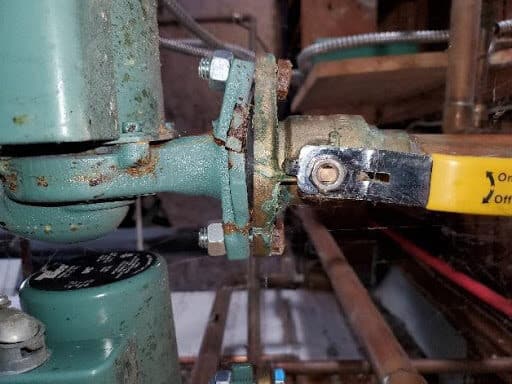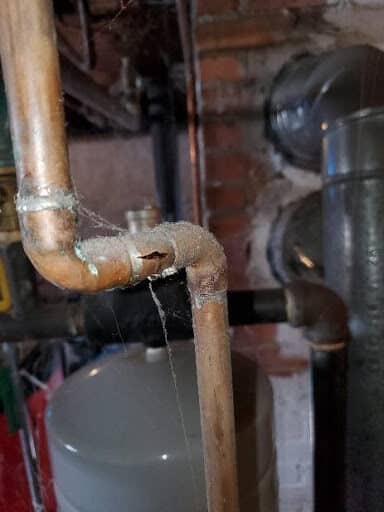
Frozen pipes can be disastrous and can be avoided with some preparation. Some of the leading causes of frozen pipes are a lack of insulation, cold drafts, and lack of fuel. The best way to avoid this from happening to you is to ensure that you are prepared when the temperatures outside drop below the freezing point and may save yourself from having to deal with the aftermath. In this blog, we will focus on what happens when pipes freeze, ways to prevent frozen pipes, what to do and not to do if the pipes freeze and who to call for help.
What happens when pipes freeze?
When the water in pipes freeze, it expands and creates a sort of ice plug within the pipe itself, stopping the water from passing through the system properly. When this happens, pressure builds up behind the ice plug, causing the pipes to swell and burst. Did you know that copper pipes are more susceptible to bursting than Pex tubing? The reason for this is that Pex tubing can swell to 1 and ½ times its diameter. As you can see in the illustration above, copper pipes are more rigid and are not as forgiving.
Did you know that we have several plumbing systems that carry water throughout our homes that serve many different purposes?
- The heating system circulates the water throughout your heating system, keeping our homes warm
- The potable water system provides the water that we use to eat, drink and bathe in
- Wastewater systems carry the wastewater to the septic system
How do I prevent my pipes from freezing?

- Shut off and drain the outside plumbing lines, hose bibs, and disconnecting garden hoses before winter
- Insulate, or wrap the pipes with heat tape that are exposed to freezing temperatures
- Stop drafts around windows and doors
- Open the cabinet doors when temperatures outside drop below freezing to allow the warm air to get inside
- Keep the temperature in the home above 55°F
- Ensure that you have enough fuel to keep your heating system operating
- Slightly turn on your faucet to a trickle to keep the water flowing in sub-zero weather, ensuring that the drain stop is open to prevent the sink or tub from overflowing
What do you do if your pipes freeze?

- Turn off the water main to stop more water from entering the system
- Turn your faucets on to reduce the pressure and drain residual water. Avoid using force when turning on the faucets as they may be frozen
- Turn off the boiler to prevent damage to the unit
- Set up a space heater in the area that is frozen to thaw the lines (Please note – Space heaters should never be left unattended)
- Open your cabinet doors to allow the warm air to get to the pipes
What not to do if your pipes freeze?
Do not use flammable heat sources to thaw out the pipes. Some flammable heat sources include: Propane heaters or blow torches as they pose a fire hazard.
Who do I call if my pipes freeze and burst?
If your pipes freeze and burst, we recommend that you call a licensed company specializing in plumbing and heating as they will be able to address both the plumbing and heating systems. Once the repairs to the system have been made and the water stops flowing, we recommend calling an IICRC certified water damage restoration company to clean up the damage and dry the structure as quickly as possible to prevent additional damages.

